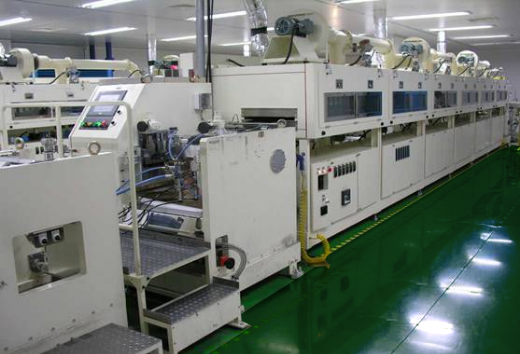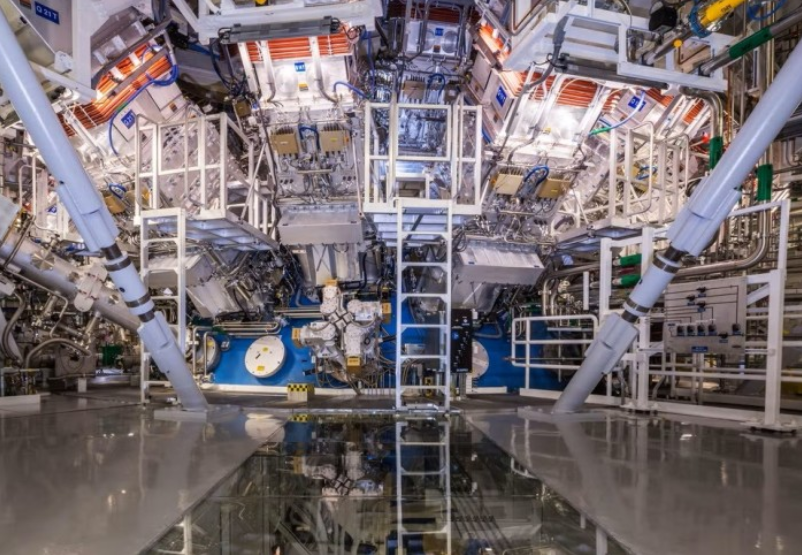リチウムイオン電池技術の進歩
Lithium-ion batteries have revolutionized the way we power our devices. From smartphones and laptops to electric vehicles and renewable energy storage systems, lithium-ion batteries have become an essential part of our modern lives. In recent years, there have been significant advancements in lithium-ion battery technology, leading to improvements in energy density, safety, and longevity.
One of the major advancements in lithium-ion battery technology is the development of new materials for the battery\’s electrodes. Traditionally, lithium-ion batteries used graphite as the anode material. However, researchers have discovered that using silicon instead of graphite can significantly increase the battery\’s energy density. Silicon has a much higher theoretical capacity for lithium storage, which means that it can store more energy. This breakthrough has the potential to greatly extend the range of electric vehicles and increase the battery life of portable electronic devices.
Another important advancement is the development of solid-state lithium-ion batteries. Traditional lithium-ion batteries use liquid electrolytes, which can be flammable and pose safety risks. Solid-state batteries, on the other hand, use solid electrolytes, eliminating the need for flammable materials. This improves the safety of the batteries and reduces the risk of thermal runaway, making them ideal for use in electric vehicles and other high-performance applications. Solid-state batteries also have the potential to offer higher energy density and faster charging times.
Researchers are also exploring the use of lithium metal as an anode material. Lithium metal has the highest known theoretical capacity and is lightweight, making it an ideal choice for battery applications. However, the use of lithium metal has been challenging due to the formation of dendrites, which can cause short circuits and reduce the battery\’s lifespan. Recent advancements in lithium metal batteries, such as the use of solid electrolytes and protective coatings, have made significant progress in overcoming these challenges. Lithium metal batteries have the potential to offer even higher energy density and longer lifespan than current lithium-ion batteries.
In addition to advancements in materials, researchers are also focusing on improving the manufacturing processes of lithium-ion batteries. One such advancement is the use of 3D printing technology to produce batteries with complex designs. This allows for greater flexibility in the design of batteries, resulting in improved performance and energy efficiency. 3D printing also reduces the amount of waste generated during the manufacturing process and enables the production of batteries with customized shapes and sizes.

Furthermore, advancements in lithium-ion battery technology are driving the development of renewable energy storage systems. As the world increasingly relies on renewable energy sources like solar and wind, the ability to store this energy for later use becomes crucial. Lithium-ion batteries are well-suited for this task due to their high energy density and fast charging capabilities. With advancements in technology, the cost of lithium-ion batteries has been decreasing, making them more affordable for both residential and commercial energy storage applications.
In conclusion, advancements in lithium-ion battery technology are revolutionizing the way we power our devices and store renewable energy. The development of new electrode materials, solid-state batteries, and lithium metal batteries are improving energy density, safety, and longevity. Furthermore, improvements in manufacturing processes, such as 3D printing, are enhancing the performance and efficiency of batteries. With these advancements, lithium-ion batteries are becoming increasingly important in various industries, and their widespread adoption is expected to continue in the coming years.
-
 As the world becomes increasingly reliant on sustainable energy solutions, the demand for reliable, efficient energy storage systems is growing rapidly. One of the most promising technologies in this field is the Lithium Iron Phosphate (LiFePO4) battery pack. This type of battery has already shown great potential for use in electric vehicles and renewable energy systems, and its advantages over...続きを読む
As the world becomes increasingly reliant on sustainable energy solutions, the demand for reliable, efficient energy storage systems is growing rapidly. One of the most promising technologies in this field is the Lithium Iron Phosphate (LiFePO4) battery pack. This type of battery has already shown great potential for use in electric vehicles and renewable energy systems, and its advantages over...続きを読む -
 LiFePO4 batteries have become increasingly popular in recent years due to their long lifespan and high performance. They are widely used in various applications, including electric vehicles, renewable energy systems, and portable electronics. However, how long can a LiFePO4 battery last? In this article, we will explore the lifespan of a LiFePO4 battery and factors that affect its longevity. ...続きを読む
LiFePO4 batteries have become increasingly popular in recent years due to their long lifespan and high performance. They are widely used in various applications, including electric vehicles, renewable energy systems, and portable electronics. However, how long can a LiFePO4 battery last? In this article, we will explore the lifespan of a LiFePO4 battery and factors that affect its longevity. ...続きを読む -
 In today's fast-paced world, reliable power solutions are essential for various applications, from powering electric vehicles to providing backup power for critical systems. One such reliable power solution is the High Capacity 12V LiFePO4 Battery - 100Ah. With its advanced technology and impressive specifications, this battery offers a dependable and efficient power solution for a wide range of applications. ...続きを読む
In today's fast-paced world, reliable power solutions are essential for various applications, from powering electric vehicles to providing backup power for critical systems. One such reliable power solution is the High Capacity 12V LiFePO4 Battery - 100Ah. With its advanced technology and impressive specifications, this battery offers a dependable and efficient power solution for a wide range of applications. ...続きを読む -
 Lithium batteries are a type of rechargeable battery that have gained popularity in recent years due to their high energy density, long cycle life, and low self-discharge rate. They are used in a wide range of applications, from powering electronic devices to electric vehicles and renewable energy systems. In this article, we will explore the benefits of lithium batteries and...続きを読む
Lithium batteries are a type of rechargeable battery that have gained popularity in recent years due to their high energy density, long cycle life, and low self-discharge rate. They are used in a wide range of applications, from powering electronic devices to electric vehicles and renewable energy systems. In this article, we will explore the benefits of lithium batteries and...続きを読む -
 In the wave of energy technology, lithium batteries, with their high energy density, long cycle life and environmental protection characteristics, have become an important support for the development of modern science and technology. The production of lithium batteries is not only an in-depth dialogue between precision technology and material science, but also a vivid interpretation of the concept of green,...続きを読む
In the wave of energy technology, lithium batteries, with their high energy density, long cycle life and environmental protection characteristics, have become an important support for the development of modern science and technology. The production of lithium batteries is not only an in-depth dialogue between precision technology and material science, but also a vivid interpretation of the concept of green,...続きを読む -
 As the world continues to search for sustainable and renewable sources of energy, the need for efficient and reliable energy storage solutions has become increasingly important. One such solution is the 12V 100Ah LiFePO4 battery pack, which offers a number of benefits over traditional lead-acid batteries. LiFePO4 (Lithium Iron Phosphate) batteries have a number of advantages over other types...続きを読む
As the world continues to search for sustainable and renewable sources of energy, the need for efficient and reliable energy storage solutions has become increasingly important. One such solution is the 12V 100Ah LiFePO4 battery pack, which offers a number of benefits over traditional lead-acid batteries. LiFePO4 (Lithium Iron Phosphate) batteries have a number of advantages over other types...続きを読む -
 The starter battery is one of the most essential components of a vehicle, providing the initial power needed to start the engine. When it comes to choosing the right battery supplier for your vehicle, there are several factors to consider, including reliable performance, compatibility, and safety. In this article, we'll provide a comprehensive guide to choosing the best starter battery...続きを読む
The starter battery is one of the most essential components of a vehicle, providing the initial power needed to start the engine. When it comes to choosing the right battery supplier for your vehicle, there are several factors to consider, including reliable performance, compatibility, and safety. In this article, we'll provide a comprehensive guide to choosing the best starter battery...続きを読む

